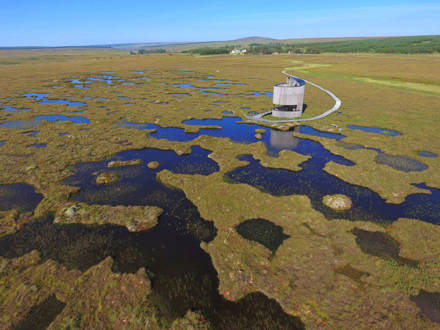
Connecting with a bunch of strangers and building those all-important relationships doesn’t need to be a daunting task. We unpack some handy advice to make event networking a breeze
Whether you want to converse with like-minded people or you want to expand your industry connections, networking at events and conferences opens the door to a number of possibilities. It doesn’t necessarily just have to be for your career or personal gain either – networking can help you keep up-to-date with current trends in your particular field and allow you to glean inspiration for new, potentially life-changing ideas.
At the EICC, we know the importance of setting up spaces at every event in a way which fosters networking opportunities, whether this is through designated networking appointments or bringing catering into our spaces to allow for conversation during break times. With this in mind, forgo a run-of-the-mill elevator pitch and make meaningful connections at your next event with these useful networking tips…

1. Start a meaningful conversation
An obvious point when networking, but the art of conversation is crucial to get right. Unless you’re a social butterfly and relish the thought of meeting and conversing with new people, networking can sometimes feel like a daunting task. But with a few pointers, it can be very rewarding. Make the most of the opportunity by creating engaging discussions instead of relaying a rehearsed elevator pitch. Starting small with seemingly simple questions can pave the way to an open dialogue and a more meaningful discussion. For example, get to know this person by asking:
- Where are you from?
- Who has been your favourite speaker so far?
- What interested you to attend this conference/event?
If there’s a particular event speaker or industry icon that you’re keen to meet, do your research beforehand to see if you have any common interests. Not only will this make for a memorable impression, but it will also be a great conversation starter.
"Try not to sit or stand during breaks with colleagues and people you already know. Instead, simply asking a table if you can join them can work perfectly"
– Debbie Rose, Head of Business Development and Partnerships at the EICC
"Try not to sit or stand during breaks with colleagues and people you already know. Instead, simply asking a table if you can join them can work perfectly" Debbie Rose, Head of Business Development and Partnerships at the EICC

2. Practise active listening
We can be so focused on our own networking goals that when we’re talking with others, we’re not really listening to what the person is saying – it’s more than likely going in one ear and out the other. Active listening can help you to learn more about a person, which is ideal in those initial introductions. Asking thoughtful, open-ended questions not only shows that you’re taking the time to really listen, but shows your interest in making this budding connection.
"I always like to ask questions and see where the conversation goes – this builds genuine, long-term connections," says Debbie Rose, Head of Business Development and Partnerships at the EICC. "Almost without exception, other delegates are there for the same reason as you – to learn and engage with others and to build their own network.
"Try not to sit or stand during breaks with colleagues and people you already know. Instead, simply asking a table if you can join them can work perfectly. I’ve met some of my best clients, partners and industry friends by doing this and I’ve never been in a situation where anyone has said no!"
When in doubt, mirror the other person’s body language … this clever little trick can make your acquaintance think you are relatable and similar.

3. Confidence is key
Whether this involves dressing the part or giving yourself a little pep talk before you walk out the front door, networking with confidence is half the battle. Be mindful of your body language during these networking opportunities to make yourself as friendly and approachable as possible.
Remember not to overthink it – simply smiling and making eye contact can show your interest. When in doubt, mirror the other person’s body language by laughing when they do or sitting or standing as they are. This clever little trick can make your acquaintance think you are relatable and similar, getting your relationship off on the right foot.

4. Follow up
After the event wraps up, it’s time to make sure your networking efforts are worthwhile. While the event is still fresh in your mind, make a note of the people you met that you’re keen to follow up with, then send them an email or a message on LinkedIn. Whether you’re suggesting catching up for a coffee, a post-conference drink or a quick bite to eat (there’s some great locations to visit around the EICC), be sure to forge those connections well after the event.



